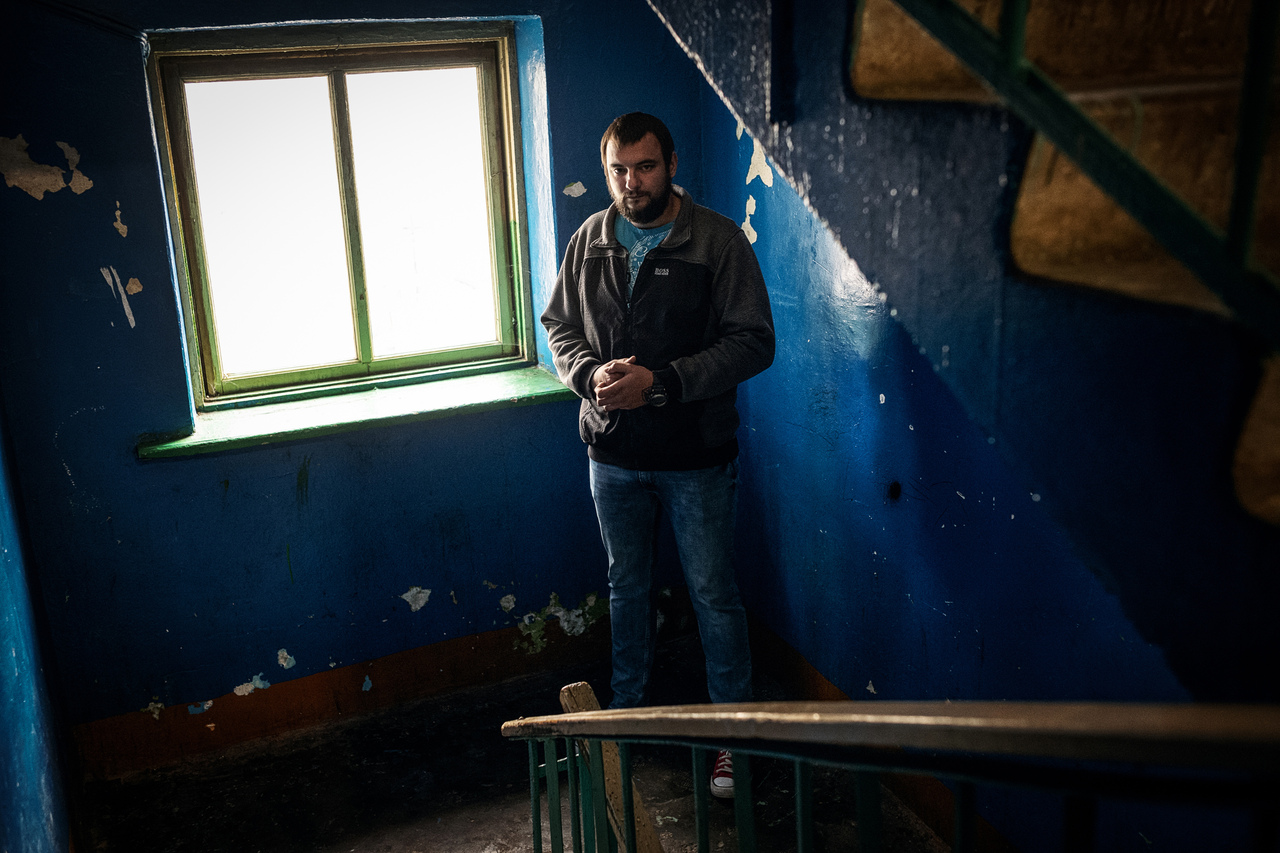Day after mass protests, Belarus arrests opposition activists
Sign up now: Get ST's newsletters delivered to your inbox

Sergei Dylevsky, a strike leader at a tractor factory, was detained by Belorussian riot police officers on Aug 24, 2020.
PHOTO: NYTIMES
MINSK (NYTIMES) - Security forces in Belarus on Monday (Aug 24) arrested two of the last high-profile opposition figures not already in jail for protesting against the country's authoritarian president, Alexander Lukashenko.
The arrests came as a senior United States diplomat met with the embattled president's most prominent opponent, who fled the country under duress earlier this month.
In the first publicly acknowledged high-level contact between the US government and the Belarusian opposition, US Deputy Secretary of State Stephen E. Biegun met in Vilnius, the Lithuanian capital, with Svetlana Tikhanovskaya, Lukashenko's main rival in the disputed presidential election on Aug 9 that triggered mass protests.
Tikhanovskaya claimed victory in the election. Lukashenko, pointing to official results that his opponents and European leaders called fraudulent, insists he won by a landslide. She fled to Lithuania a week ago after security agents in Minsk, the capital of Belarus, detained her and forced her to make a video urging people not to protest the election result.
The dangers that awaited her had she stayed in Belarus were evident on Monday, when riot police officers seized Olga Kovalkova, an ally of Tikhanovskaya, and Sergei Dylevsky, a strike leader at a tractor factory in Minsk.
Both were seized in front of the Minsk Tractor Works, a vast Soviet-era plant whose workers, long viewed as loyal supporters of the government, last week threatened to go on strike unless Lukashenko stepped down.
Two other activists were told to report for questioning by the country's investigative committee in a criminal case against the opposition's coordinating council.
One of them was Nobel Prize-winning writer Svetlana Alexievich, a member of the council.
Defying expectations that the protest movement might be losing steam in the face of a violent crackdown by Lukashenko, more than 100,000 people flooded into Minsk on Sunday, calling for the president to step down after 26 years in power. Lukashenko, famous for his displays of macho bravado, responded by appearing outside his presidential palace waving an automatic rifle.
The crisis in Belarus, a nation of 9.5 million people that has long served as an authoritarian buffer between Russia and NATO-member democracies Lithuania and Poland, has escalated in recent days beyond just an internal political struggle to become a focus of geopolitical tensions between Russia and the West.
Moscow and Washington each insist they have no dog in the fight and just want the Belarusian people to settle their own affairs peacefully, while also accusing each other of meddling.
Just minutes before the meeting in Lithuania between the US official and Tikhanovskaya, the Kremlin's spokesman, Dmitri Peskov, told journalists in Moscow that President Vladimir Putin considered all foreign interference in Belarus "inadmissible" and wanted it to stop.
"These are the forces currently trying to put direct and indirect pressure on the events in Belarus. Such element exists, and regretfully, this cannot be ignored," Peskov said.
In a sign of keen Russian interest in the events in Belarus, Putin and Lukashenko again discussed the crisis by telephone Monday, their third such conversation in just over a week. Lukashenko has sought to rally Russia to his side by painting his opponents as Western stooges and his own political survival as essential for Russia's security.
But unlike Ukrainian protesters who toppled their own president in 2014, many of whom regarded Russia as an enemy, opponents of Lukashenko have worked to reassure Moscow that their movement is not anti-Russian and that a change of leadership in Minsk would not mean Belarus aligning with NATO and the European Union.
Speaking on Monday at a news conference in Minsk, members of the coordinating council, a loose body created by opposition members to streamline their actions, vowed that they would never do anything to damage long-close relations between Belarus and Russia.
"Whoever offers to build a wall between Belarus and Russia will be the last politician in Belarus," said Pavel P. Latushko, a former member of Lukashenko's government, now a member of the council's presidium.
Speaking in Lithuania after his meeting with Tikhanovskaya, Biegun, the deputy secretary of state, avoided endorsing the opposition's claim that Lukashenko lost the election, but described Tikhanovskaya as "very impressive," saying, "I can see why she is so popular in her country."
Biegun, who is scheduled to travel to Moscow on Tuesday to discuss Belarus with Russian officials, said the US "cannot and will not decide the course of events in Belarus," adding that, "there is an outcome here that can be acceptable to everyone."
Lukashenko, however, has shown no interest in finding a compromise with his opponents, warning Saturday that protesters have until Monday to "make up their mind," and telling riot police officers guarding his palace on Sunday that "we will deal with them," apparently referring to protesters.


